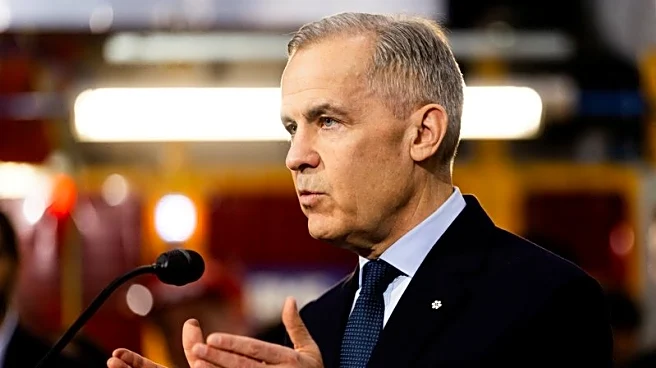Rapid Read • 8 min read
The Organization for Economic Co-operation and Development (OECD) is an international body comprising 38 democracies from Europe, North America, the Pacific Rim, and Latin America. Established in 1961 and headquartered in Paris, the OECD accounts for a significant portion of global economic activity, including 63% of world GDP and three-quarters of world trade. The organization serves as a policy forum covering a wide range of economic, social, and scientific areas, from macroeconomic analysis to biotechnology. The OECD facilitates discussions and peer reviews among member countries, with some legally binding instruments like the Anti-Bribery Convention. The U.S. actively participates in the OECD, particularly in trade and investment discussions, and the U.S. Trade Representative leads the U.S. delegation in annual meetings.
AD
The OECD plays a crucial role in shaping global economic policies and standards, impacting international trade, investment, and economic growth. For the U.S., participation in the OECD provides a platform to influence global economic policies and address challenges such as trade barriers and investment protection. The organization's work on digital trade, environmental policies, and technology transfer is particularly relevant as these areas are critical to the U.S. economy. The OECD's ability to foster consensus among member countries can lead to coordinated international efforts, benefiting U.S. economic interests and promoting global stability.
The OECD will continue to engage with both member and non-member countries through workshops and global forums, addressing emerging economic challenges. The U.S. is expected to maintain its active role in the OECD, particularly in areas like trade facilitation and environmental policies. The organization's ongoing dialogue with major economies and civil society will likely influence future policy directions, with potential implications for U.S. trade and investment strategies.
The OECD's emphasis on peer review and consensus-building highlights the importance of multilateral cooperation in addressing global economic issues. The organization's outreach to non-member countries and civil society reflects a commitment to inclusive policy development, which could lead to more equitable economic growth. The OECD's work on balancing domestic objectives with international trade underscores the complexity of global economic governance.
AD
More Stories You Might Enjoy













